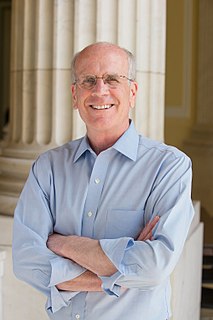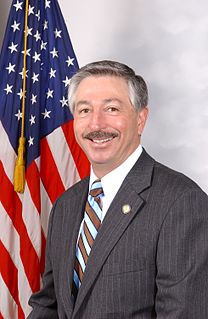A Quote by Peter Welch
The potential for Home Star to create jobs is proven and real. In Vermont, our statewide energy efficiency utility, Efficiency Vermont, created more than 430 jobs in 2007 and 2008, generating more than $40 million in income.
Related Quotes
Home Star is a common sense idea that would create jobs and provide a boost to local economies, while helping families afford their energy bills. By encouraging homeowners to invest in energy efficiency retrofits, Home Star would create 170,000 manufacturing and construction jobs that could not be outsourced to China.
Just refrigerator efficiency saves more energy than all that we're generating from renewables, excluding hydroelectric power... I cannot impress upon you how important energy efficiency is. It doesn't mean you eat lukewarm food and your beers are lukewarm. You can still have it; you just make a better thing
I think jobs can have a big impact. I think if we continue to create jobs - over a million, substantially more than a million. And you see just the other day, the car companies coming in with Foxconn. I think if we continue to create jobs at levels that I'm creating jobs, I think that's going to have a tremendous impact - positive impact on race relations.
The Republicans are wrong in thinking that the rich create jobs. In reality, many of the richest Americans have been investing in efficiency innovations rather than to create jobs. And the Democrats are wrong, because growth won't happen if they distribute the wealth of the wealthy to everyone else.
Vermont is such a small state, and the most money that's ever been spent in the history of political campaigns there is $2 million. That number is going to be surpassed many times. Vermont remains a "cheap state" for the Republican National Committee. So putting $5 or $10 million into Vermont - compared to New York or California or Illinois - that's small potatoes.
With living wage jobs, basically 20 million of them to help jump-start a sustainable and healthy economy, with an insured, just transition, for example, for workers in both the fossil fuel and in the weapons industry, because they all need to transition to sustainable forms of production. This is also our answer to the departure of manufacturing jobs and good jobs by creating the manufacturing base here for clean renewable energy and the efficiency systems and public transportation to put these workers to work in jobs that are actually good for them.































